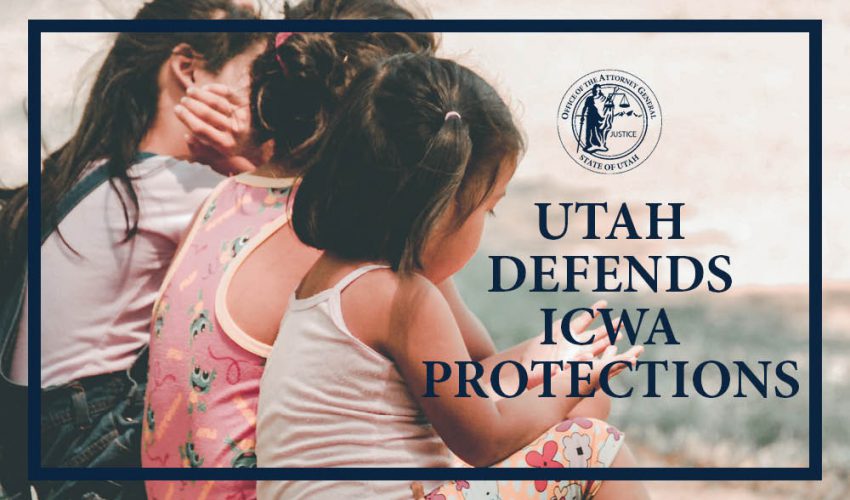Attorney General Sean D. Reyes Joins Bipartisan Coalition in Defense of Indian Child Welfare Act Protections Before the U.S. Supreme Court
SALT LAKE CITY, UTAH (October 8, 2021) — Attorney General Sean D. Reyes today joined a bipartisan coalition of 26 attorneys general, led by California, in an amicus brief in support of the United States and four federally recognized tribes in their efforts to uphold critical protections guaranteed under the Indian Child Welfare Act (ICWA). Filed before the U.S. Supreme Court in Haaland v. Brackeen and Cherokee Nation v. Brackeen, the amicus brief highlights the states’ compelling interest in standing up for the well-being of all children, including Native American children, in state child-custody proceedings.
“Today, the State of Utah joins with 25 other states in urging the Supreme Court to uphold the constitutionality of the Indian Child Welfare Act. ICWA is a valid exercise of Congressional power and serves an important role in fostering a good relationship between the State and Indian Tribes. Most importantly, ICWA helps ensure that Indian children maintain connections to their families and their Tribe when placed in foster care or when adopted. The State will continue to work with its tribal partners to promote the interests of Utah’s Indian children.” said Solicitor General Melissa A. Holyoak.
Congress enacted ICWA in 1978 in response to a serious and pervasive problem: State and private parties were initiating state child-custody proceedings that removed Native American children from the custody of their parents — often without good cause — and placed them in the custody of non-tribal adoptive and foster homes. That practice harmed children and posed an existential threat to the continuity and vitality of tribal communities. To address this, Congress established minimum federal standards governing the removal of Native American children from their families. ICWA’s provisions safeguard the rights of Native American children, parents, and tribes in state child-custody proceedings, and seek to promote the placement of Native American children with members of their extended families or with other tribal homes. In the four decades since Congress enacted ICWA, the statute has become the foundation of state-tribal relations in the realm of child custody and family services. Collectively, the coalition states are home to approximately 86% of federally recognized tribes in the United States.
In the amicus brief, the coalition asserts that:
- ICWA is a critical tool for protecting Native American families and tribes, and fostering state-tribal collaboration;
- The court of appeals incorrectly concluded that several of ICWA’s provisions violate the anti-commandeering doctrine; and
- ICWA’s preferences for the placement of Native American children with other Native American families and foster homes do not violate equal protection.
In filing the amicus brief, Attorney General Sean D. Reyes joins the attorneys general of California, Alaska, Arizona, Colorado, Connecticut, Idaho, Illinois, Iowa, Maine, Massachusetts, Michigan, Minnesota, Nevada, New Jersey, New Mexico, New York, North Carolina, Oregon, Pennsylvania, Rhode Island, Virginia, Vermont, Washington, Wisconsin, and the District of Columbia.

